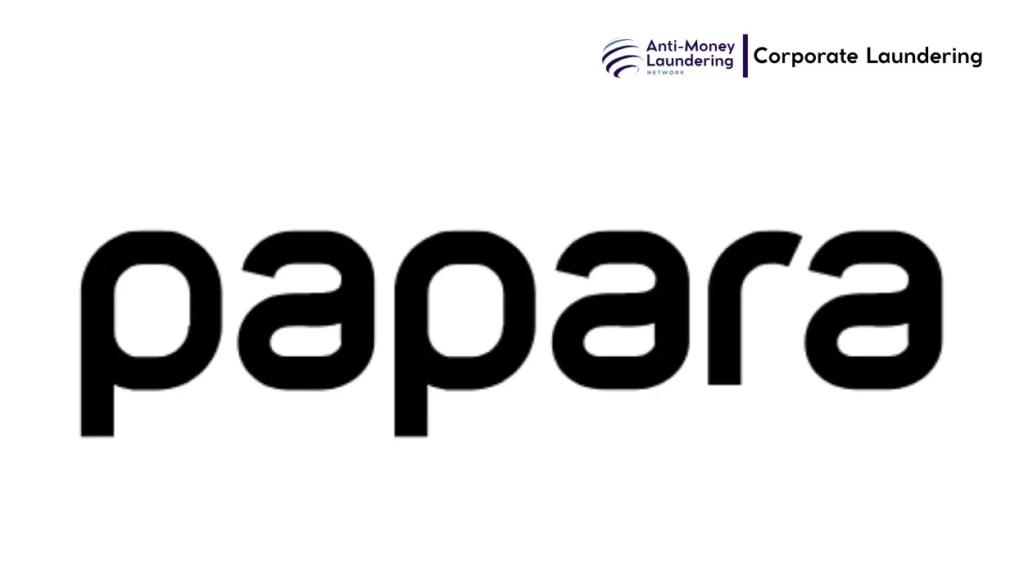Papara Elektronik Para A.Ş., commonly known as Papara, is a leading Turkish fintech company incorporated in Turkey and headquartered in Istanbul. Founded in 2015 with its electronic money institution license issued in 2016, Papara has rapidly become one of the country’s fastest-growing digital payment platforms. The company caters to millions of users, reportedly exceeding 21 million, offering digital wallets, prepaid cards, peer-to-peer transfers, bill payments, and foreign exchange transactions.
Papara’s corporate structure is anchored under PPR Holding Inc., which controls Papara along with eight related companies. The company has expanded internationally by acquiring Pakistan-based digital money institution SadaPay and Spanish neobank Rebellion Pay, reflecting strong ambitions in the fintech space beyond Turkey’s borders.
Overview of the 2025 Money Laundering Investigation
In 2025, Papara became the focal point of a high-profile Turkish government investigation triggered by allegations of facilitating money laundering tied to illegal betting activities. Turkish law enforcement detained 13 key individuals connected with Papara, including founder and chairman Ahmet Faruk Karslı. The investigation, led by the Istanbul Chief Public Prosecutor’s Office and supported by financial regulatory bodies including the Central Bank of Turkey and the Financial Crimes Investigation Board (MASAK), unearthed suspicious transaction flows totaling an estimated $330 million spread across more than 26,000 user accounts on the Papara platform.
Money Laundering and Trade-Based Laundering Mechanisms in Papara’s Operations
The primary laundering mechanism identified by Turkish authorities relates to layering funds through Papara’s e-money platform, facilitating the transfer of illegal betting proceeds. This scheme leveraged the fintech’s capability for fast and extensive transaction processing by allowing illegal bettors to open accounts and funnel proceeds disguised as legitimate transactions. The illegal betting funds were effectively laundered by converting dirty money through digital payments and exchange services, a form of trade-based laundering where the underlying illicit source is obscured via extensive transactional activity.
Papara’s infrastructure enabled these activities by not adequately interrupting the flow of suspicious funds, thereby generating fees on illicit transactions and allowing the continuation of laundering operations under the guise of legitimate business.
Corporate Governance and Regulatory Response
Following the detentions and heightened scrutiny, the Turkish Savings Deposit Insurance Fund (TMSF) was appointed by court order as trustee to oversee Papara’s operations during the ongoing investigation. This regulatory intervention was supplemented by the Turkish Central Bank imposing temporary daily transactional limits on Papara’s platform to mitigate risk exposure and protect users.
The crackdown also involved seizure of assets tied to Papara’s parent company and associated entities, including luxury cars, properties, yachts, and cryptocurrency wallets — signaling a robust enforcement stance against perceived corporate complicity in financial crimes.
Financial Transparency and Beneficial Ownership Concerns
Papara’s ownership and governance have been critical in discussions around financial transparency. Ahmet Faruk Karslı, the founder and CEO, holds significant control, with PPR Holding Inc. owning the majority of shares. While the publicly available data show no direct connection of Papara’s owners to Politically Exposed Persons (PEPs), the company’s involvement in illicit financial flows raises questions related to beneficial ownership transparency and compliance robustness.
Additionally, the acquisition of companies such as SadaPay in Pakistan places the governance and compliance standards of Papara under international scrutiny, given regulatory differences and cross-border risks related to Anti–Money Laundering oversight.
Anti–Money Laundering (AML) and Trade-Based Laundering Challenges
The Papara case exemplifies challenges fintech companies face in implementing stringent AML controls in a rapidly evolving digital financial ecosystem. While the company operates as a licensed electronic money institution, the alleged involvement in laundering activities suggests gaps in compliance and risk management.
Trade-based laundering, as highlighted by the Turkish probe, involves using legitimate financial and trade transactions to disguise illicit money flows, making detection difficult, especially in fintech environments reliant on high volumes of micro-transactions.
Papara’s Corporate Address and Leadership
Papara’s main corporate office is located in Istanbul, Turkey. Ahmet Faruk Karslı remains a key figure as founder and CEO. Despite the ongoing investigation, he continues to be identified publicly as leading the company, though regulatory authorities have placed trustees to manage day-to-day operations amidst legal proceedings.
Implications for Corporate Governance and Financial Sector Regulation
The investigation into Papara underscores the importance of robust corporate governance and financial transparency in fintech firms, particularly amidst rapid expansion and cross-border activities. Regulators globally are paying closer attention to beneficial ownership disclosures, transactional monitoring, and AML protocols to prevent the exploitation of digital financial platforms for illicit purposes.
Papara’s case serves as a cautionary tale for fintech entities about the legal and reputational risks arising from inadequate oversight and illicit activity facilitation. It prompts a broader conversation on how emerging financial technologies must evolve alongside regulatory frameworks to ensure compliance and safeguard against abuse in money laundering and financial crimes.
The Turkish fintech Papara’s 2025 money laundering investigation highlights the intersection of technological innovation, regulatory challenges, and criminal exploitation in finance. While Papara has played a significant role in enhancing financial inclusion and service accessibility, the legal actions against the company stress the need for enhanced governance structures and AML measures tailored to digital finance.
As regulators intensify scrutiny and enforcement, Papara’s ongoing case will likely influence fintech governance models regionally and globally, encouraging stronger beneficial ownership transparency, enhanced transaction monitoring, and cooperative compliance across jurisdictions.
This case also emphasizes the critical importance of continuous anti-money laundering vigilance, particularly concerning trade-based laundering mechanisms and platforms dealing with high volumes of small-value transactions, to maintain financial system integrity and transparency.

